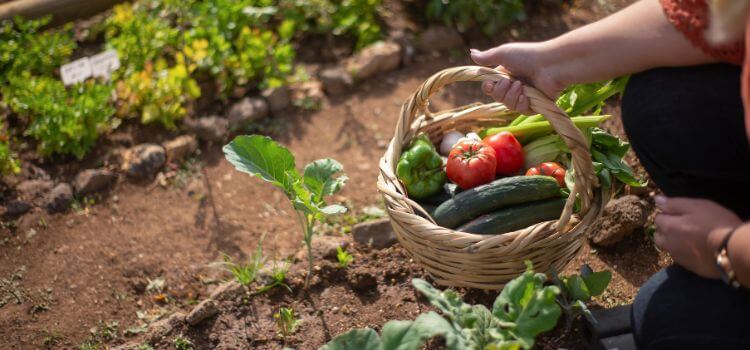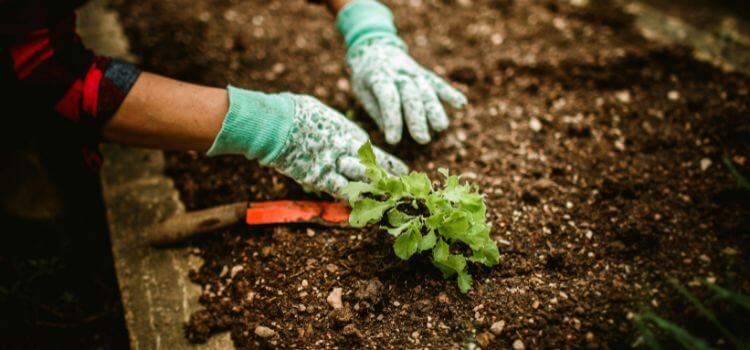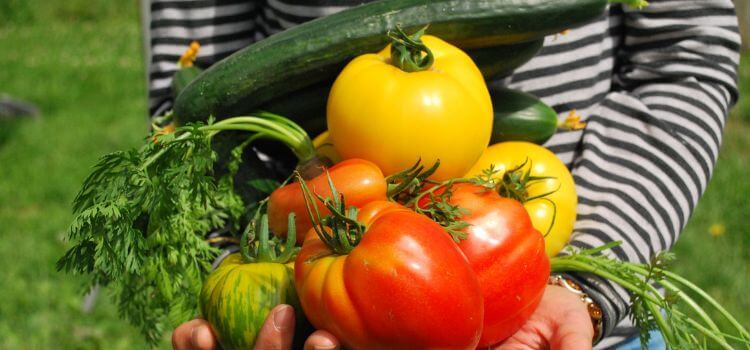As an Amazon Associate, I earn from qualifying purchases.
Starting your vegetable garden can feel scary at first. I felt the same when I began. But trust me, it’s not hard once you know the steps. If you’re looking for tips for starting your vegetable garden, this guide is for you. It’s written in simple words and short sentences, just like talking to a friend.
Many people want to grow food at home but don’t know how to start. That’s okay. I started with just a few pots and seeds. Now, I enjoy fresh tomatoes, spinach, and beans from my backyard. In this article, I’ll share my best tips so you can enjoy the same.
Let’s dig into the soil (literally) and grow something amazing!
What Is The First Thing You Should Do Before Gardening?
Before you plant anything, the most important thing is to choose the right place. Plants need sunlight, air, and water. If you put them in the wrong spot, they won’t grow well.
Look around your house or yard. Pick a place that gets at least 6 hours of sunlight every day. That’s what most vegetables need to grow strong. If you live in a flat, a sunny balcony or rooftop works fine too.
Next, think about water. Can you water your plants easily there? Carrying buckets every day is not fun. I made that mistake. Later, I moved my pots near a water tap.
Also, check the soil. Is it too hard or too sandy? Healthy soil should be loose and dark. You can add compost to improve it. Compost is like magic food for plants. It helps them grow faster.
Note: Don’t plant where dirty water collects. That can harm your plants.

What Are The Best Vegetables For Beginners To Grow?
Some vegetables are easier to grow than others. I always suggest starting with simple ones. They grow fast and don’t need much care.
Here are my top picks:
- Tomatoes grow well in pots and require sunlight.
- Spinach – Grows fast and easy.
- Radishes – Ready in 3 weeks.
- Coriander – Grows even in small spaces.
- Beans – Climb and look pretty too.
- Okra – Strong and grows in summer.
Try 2–3 of these at first. Watch them grow. When you feel ready, add more.
Each plant has different needs. Tomatoes need support sticks. Spinach grows in shallow soil. Read seed packets before planting.
Do you think you’ll start with leafy ones or fruit-type vegetables?
How Do You Prepare The Soil For Your Vegetable Garden?
Good soil is the heart of your garden. If the soil is weak, your plants will be weak too. Preparing soil is simple. I follow the same method every season.
Here’s my easy soil-prep routine:
- Clear the area.
- Dig 6–8 inches deep.
- Remove stones and weeds.
- Mix compost into the soil.
- Add a bit of cow dung or dry leaves.
- Water lightly.
- Let it rest for 2 days.
This makes the soil soft and full of nutrients. Your plants will love it.
Let’s check a soil care chart:
| Step | Tools Needed | Purpose |
|---|---|---|
| Digging | Spade, shovel | Loosens soil for roots |
| Composting | Compost, gloves | Feeds plants naturally |
| Leveling | Stick or rake | Even surface for water |
Note: Don’t use soil from roadside areas. It may have chemicals.

What Tools Do You Need To Start Gardening?
You don’t need fancy tools. Just a few basic ones are enough. I started with these, and they worked fine:
- Small spade or trowel
- Watering can or spray bottle
- Gloves (to keep hands clean)
- Buckets or pots with holes
- Stick or wooden frame (for climbing plants)
If you grow in pots, pick ones with drainage holes. Water should not stay in the bottom. I learned this the hard way when my roots got soggy.
Also, label your plants. I write names on ice cream sticks. That way, I don’t forget which seed I planted where.
Gardening doesn’t mean spending big. Use old buckets, bottles, or tins as pots. Even coconut shells work!
How Should You Water And Care For Your Vegetable Garden?
Water is life. But too much water can hurt your plants. I used to think more water means better growth. But I was wrong. Some plants like moist soil. Others need it dry between watering.
Here’s what I do:
- Check soil daily.
- If the top 1 inch feels dry, water lightly.
- Water in the early morning or late afternoon.
Plants also need air. Don’t crowd too many in one pot. Give space so each plant breathes.
Also, look out for bugs. Use neem water or garlic spray if you see pests. These are safe and work well.
Weeds are troublemakers. Remove them as soon as you see them. They steal food from your plants.
Keep a simple care routine:
| Care Task | When To Do It | Tip |
| Watering | Every 1–2 days | Depends on plant type |
| Removing weeds | Weekly | Use hands or small tool |
| Pest check | Weekly | Spray if needed |
What Are Common Mistakes You Should Avoid?
I’ve made many mistakes. But I learned from them. Let me share what to avoid:
- Don’t plant too many in one pot.
- Don’t water without checking the soil.
- Don’t use chemical sprays.
- Don’t grow without compost.
- Avoid placing it in full-day hot sun.
Each plant has its needs. Observe them. Their leaves will tell you if they’re happy or sad.
I once planted everything close together. The plants got sick because air couldn’t pass. Now, I give space. And they grow strong.
Gardening is like raising a child. It needs time, care, and love.
Frequently Asked Questions
Can I Grow Vegetables In Small Spaces?
Yes. Use pots, bottles, or bags. Just make sure they get sunlight.
What Is The Best Time To Start A Vegetable Garden?
Spring or early winter is good. But some vegetables grow all year.
Do I Need Fertilizer For My Garden?
Yes. Use compost, cow dung, or leaf mulch.
How Long Do Vegetables Take To Grow?
It depends. Radishes take 3 weeks. Tomatoes may take 2 months.
Can Kids Help In Gardening?
Yes! Let them water, plant seeds, or make labels. It’s fun for them.
Conclusion
Starting a vegetable garden is one of the best things you can do. You eat fresh. You feel calm. And you save money. I started small, just three pots near my kitchen window. Now I grow enough for my family.
You don’t need a big yard or expensive tools. Just follow these tips and begin. Every seed you plant teaches you something.
How do you think it would feel to cook with veggies you grew yourself? Try it. You’ll smile with every bite.

